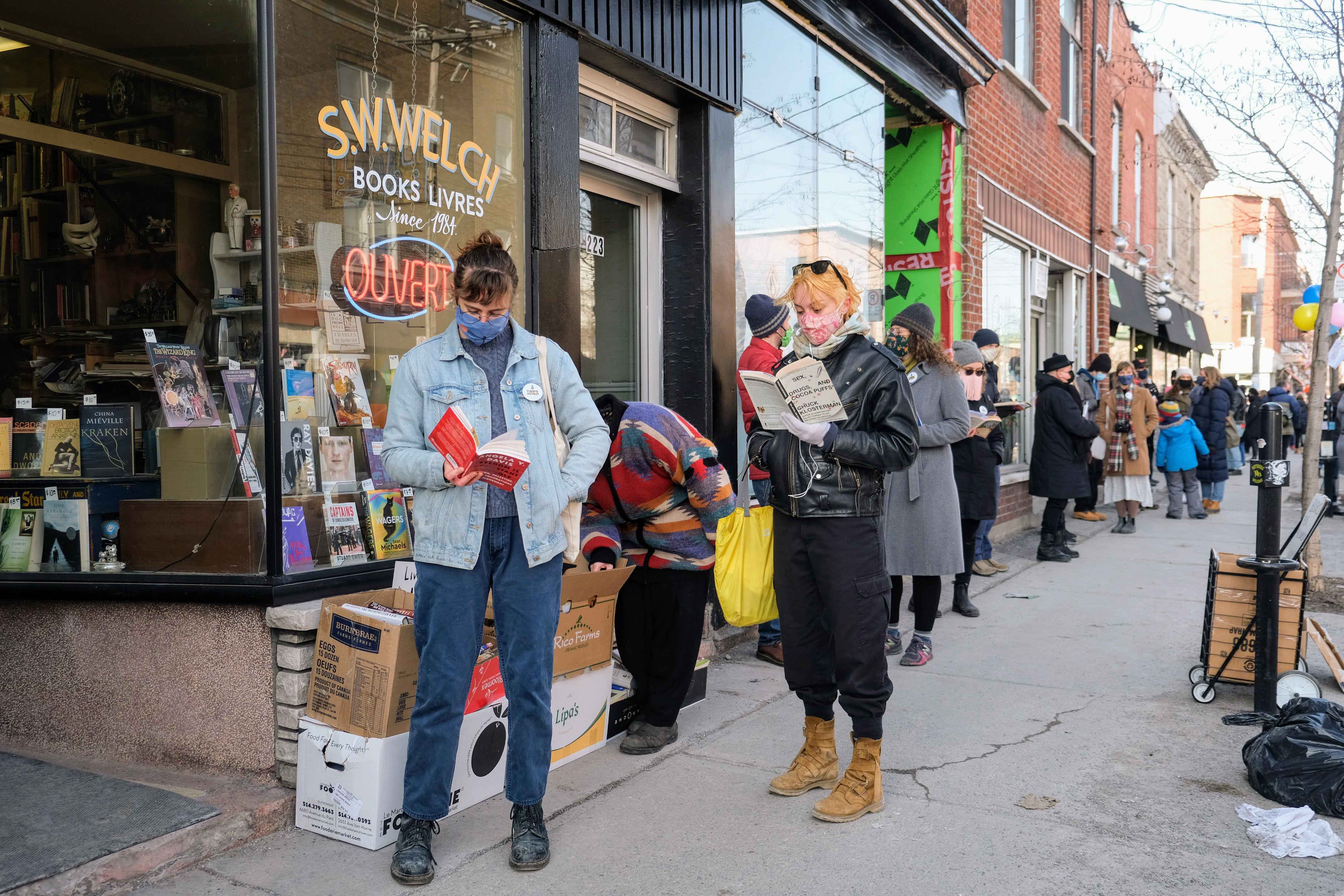On March 13, approximately 100 people lined up outside S.W. Welch Bookseller to celebrate the survival of the business after its owner, Stephen Welch, had announced its closure, and to protest gentrification in the Mile End neighbourhood.
The “read-in” protest was organized by Mile End Ensemble, a group that formed after news circulated online that the bookstore’s landlord, Shiller Lavy, was forcing its closure with a 150 per cent rent increase. Patricia Boushel, a member of Mile End Ensemble, noted that the neighbourhood was quick to organize upon hearing the news of S.W. Welch’s closing.
“I heard about [the closure] through Taras Grescoe’s Twitter,” Boushel said in an interview with The McGill Tribune. “He’s a local writer who took a photo of the ‘for rent’ sign in [the bookstore’s] window and then got the info circulating. A bunch of people started chiming in, especially that it was a Shiller Lavy ‘for rent’ sign. Many of us have watched that company make its way around the neighbourhood in a devastating way. Just seeing that sign was an omen of terrible things.”
Shiller Lavy’s steep rent increase continued to garner media attention, with major news outlets such as CTV Montreal and CBC News picking up the story. Meanwhile, 50 members of the community began to mobilize by holding an impromptu protest on March 1, followed by the official creation of Mile End Ensemble, which then spurned March 13’s “DOES ANYBODY BUY BOOKS TODAY? (A Read-In).”
The public outcry successfully pressured Shiller Lavy to lower the rent for a duration of two years. Although the attention helped S.W. Welch remain open, Boushel says that the issue of gentrification goes beyond the particular barrier of rent hikes.
“It’s not just an isolated case of a rent hike, it’s a symptom of a really big interconnected problem,” Boushel said. “If we have these businesses that do not have skyrocketing rents, then our groceries can remain affordable. It’s all connected. We’re really acting out of a desire to retain accessibility and equity in our neighbourhoods.”
S.W. Welch is not the first local business to be driven out of the Mile End by gentrification. Boulangerie Clarke, a bakery known for its five-dollar sandwiches, was forced to close its doors in 2015, when their rent unexpectedly tripled after 35 years in business. Café, co-op, and queer space Le Cagibi relocated to Little Italy in 2018 when their rent more than doubled. The former spaces of these small businesses are still owned by Shiller Lavy. Ian Rogers, a long time resident of the Mile End who attended the protest, has witnessed the gentrification of the neighbourhood over the years.
“I’ve been living in this neighbourhood for a long time,” Rogers said. “It has been about 30 years now. It’s changed a lot over that time, but just over the last 10 [to] 15 years, it started to become very gentrified, especially when Shiller Lavy started buying up so many properties on St. Viateur.”
Mile End Ensemble, Rogers, and other protesters hope that the read-in signals to government officials that action needs to be taken against predatory rent practices.
“[The municipal government] says their hands are tied but they control zoning,” Rogers said. “They control property taxes, they control licenses, they control inspections, and they’re doing nothing. This is one of their core neighbourhoods, but if they do not do anything maybe this next election we will vote for someone besides Projet Montréal.”
As for Welch himself, he is simply happy to live in a supportive neighbourhood.
“It makes me very gratified to see it,” Welch said. “I live in an art co-op, so I know very well the power of collectivity.”








